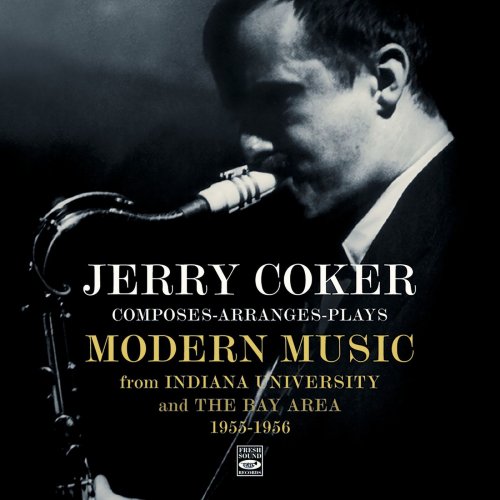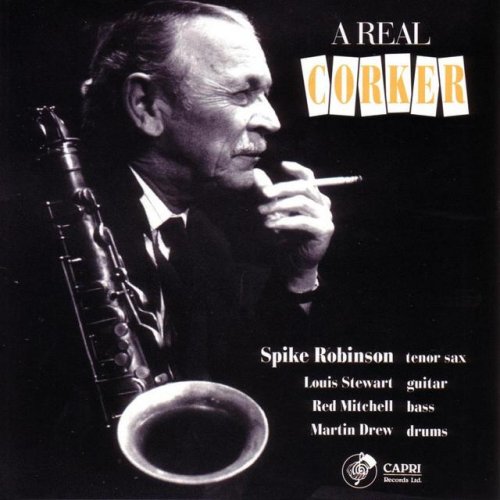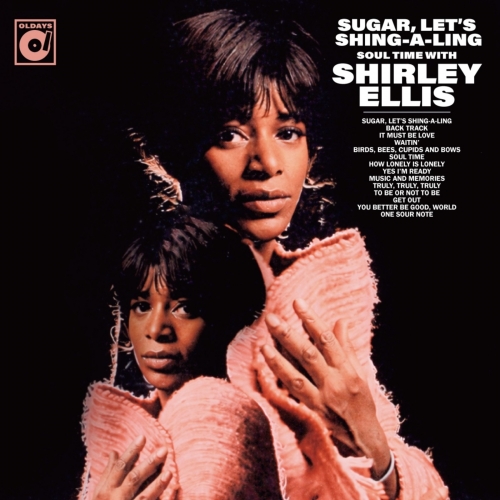Jerry Coker - Composes-Arranges-Plays Modern Music From Indiana University And The Bay Area 1955-1956 (2016)

Artist: Jerry Coker
Title: Composes-Arranges-Plays Modern Music From Indiana University And The Bay Area 1955-1956
Year Of Release: 2016
Label: Fresh Sound Records
Genre: Jazz
Quality: FLAC (tracks) / MP3
Total Time: 1:17:30
Total Size: 456 / 179 MB
WebSite: Album Preview
Tracklist:Title: Composes-Arranges-Plays Modern Music From Indiana University And The Bay Area 1955-1956
Year Of Release: 2016
Label: Fresh Sound Records
Genre: Jazz
Quality: FLAC (tracks) / MP3
Total Time: 1:17:30
Total Size: 456 / 179 MB
WebSite: Album Preview
01. Limehouse Blues
02. Old Crinkletoes
03. Opus #1
04. Red Kelly's Blues
05. Nancy
06. Kigeria
07. You Gotta Show Me
08. It's You or No One
09. Jack's Acts
10. This Is Always
11. Lost April
12. Clare-Ity
13. You'll Stay
14. Water's Edge
15. Giggling Oysters
16. 'Enry 'Iggins 'Ead
17. Yesterdays
18. Wail for Patrick
19. Boot's Boots
20. Topsy Returns
21. Smithsonian
22. Embarkation
23. Thanks for You
Born in 1932, tenor saxophonist Jerry Coker first emerged as a major talent in Indiana University’s brilliant jazz clique of the early ‘50s. While he was still a student he joined Woody Herman’s Third Herd, leading to a year performing, recording and, in the spring of 1954, a European tour. Returning to Indiana that summer, he was at the heart of the university’s thriving jazz movement which, in July 1955, recorded his album, Modern Music from Indiana University. Leading some talented students, Coker, as producer, wrote all the arrangements – with echoes of the Four Brothers sax sound – while his solo work revealed an affinity for Lester Young.
In 1956, settled in Oakland, he began to make a name himself as performer, composer and arranger, and joined Rudy Salvini’s rehearsal band. He also recorded with them and with his own quartet in November for San Francisco Jazz Records.
While the Kenton band was playing in the Bay Area, Coker briefly replaced the injured Bill Perkins, but, despite his considerable reputation as a soloist, after the spring of 1957 his appearances on concert and on record have been rare. He has since mostly devoted himself to teaching and writing, which has obscured his talents as a player—a pity, as these recordings show just how good he was.
In 1956, settled in Oakland, he began to make a name himself as performer, composer and arranger, and joined Rudy Salvini’s rehearsal band. He also recorded with them and with his own quartet in November for San Francisco Jazz Records.
While the Kenton band was playing in the Bay Area, Coker briefly replaced the injured Bill Perkins, but, despite his considerable reputation as a soloist, after the spring of 1957 his appearances on concert and on record have been rare. He has since mostly devoted himself to teaching and writing, which has obscured his talents as a player—a pity, as these recordings show just how good he was.




![Chad Lefkowitz-Brown - City Spirit (2026) [Hi-Res] Chad Lefkowitz-Brown - City Spirit (2026) [Hi-Res]](https://www.dibpic.com/uploads/posts/2026-02/1772171883_y3mc4z2lmsr7a_600.jpg)


![Martin Listabarth Trio - In Her Footsteps (2026) [Hi-Res] Martin Listabarth Trio - In Her Footsteps (2026) [Hi-Res]](https://www.dibpic.com/uploads/posts/2026-02/1771946819_folder.jpg)
